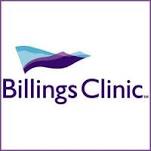Traditional Versus Early Aggressive Therapy for Multiple Sclerosis Trial
| Status: | Recruiting |
|---|---|
| Conditions: | Neurology, Neurology |
| Therapuetic Areas: | Neurology |
| Healthy: | No |
| Age Range: | 18 - 60 |
| Updated: | 3/30/2019 |
| Start Date: | May 2, 2018 |
| End Date: | October 31, 2022 |
| Contact: | Sandra Cassard, ScD |
| Email: | scassar1@jhmi.edu |
| Phone: | 443-287-4353 |
A Pragmatic Trial to Evaluate the Intermediate-term Effects of Early, Aggressive Versus Escalation Therapy in People With Multiple Sclerosis
FDA-approved multiple sclerosis (MS) disease-modifying therapies (DMTs) target the relapsing
phase of MS but have minimal impact once the progressive phase has begun. It is unclear if,
in the relapsing phase, there is an advantage of early aggressive therapy with respect to
preventing long-term disability. The infectious risks and other complications associated with
higher-efficacy treatments highlight the need to quantify their effectiveness in preventing
disability.
The TRaditional versus Early Aggressive Therapy for MS (TREAT-MS) trial is a pragmatic,
randomized controlled trial that has two primary aims: 1) to evaluate, jointly and
independently among patients deemed at higher risk vs. lower risk for disability
accumulation, whether an "early aggressive" therapy approach, versus starting with a
traditional, first-line therapy, influences the intermediate-term risk of disability, and 2)
to evaluate if, among patients deemed at lower risk for disability who start on first-line MS
therapies but experience breakthrough disease, those who switch to a higher-efficacy versus a
new first-line therapy have different intermediate-term risk of disability.
phase of MS but have minimal impact once the progressive phase has begun. It is unclear if,
in the relapsing phase, there is an advantage of early aggressive therapy with respect to
preventing long-term disability. The infectious risks and other complications associated with
higher-efficacy treatments highlight the need to quantify their effectiveness in preventing
disability.
The TRaditional versus Early Aggressive Therapy for MS (TREAT-MS) trial is a pragmatic,
randomized controlled trial that has two primary aims: 1) to evaluate, jointly and
independently among patients deemed at higher risk vs. lower risk for disability
accumulation, whether an "early aggressive" therapy approach, versus starting with a
traditional, first-line therapy, influences the intermediate-term risk of disability, and 2)
to evaluate if, among patients deemed at lower risk for disability who start on first-line MS
therapies but experience breakthrough disease, those who switch to a higher-efficacy versus a
new first-line therapy have different intermediate-term risk of disability.
FDA-approved multiple sclerosis (MS) disease-modifying therapies (DMTs) target the relapsing
phase of MS but have minimal impact once the progressive phase has begun. It is unclear if,
in the relapsing phase, there is an advantage of early aggressive therapy with respect to
preventing long-term disability. The infectious risks and other complications associated with
higher-efficacy treatments highlight the need to quantify their effectiveness in preventing
disability.
The TRaditional versus Early Aggressive Therapy for MS (TREAT-MS) trial is a pragmatic,
randomized controlled trial that has two primary aims: 1) to evaluate, jointly and
independently among patients deemed at higher risk vs. lower risk for disability
accumulation, whether an "early aggressive" therapy approach, versus starting with a
traditional, first-line therapy, influences the intermediate-term risk of disability, and 2)
to evaluate if, among patients deemed at lower risk for disability who start on first-line MS
therapies but experience breakthrough disease, those who switch to a higher-efficacy versus a
new first-line therapy have different intermediate-term risk of disability.
Hypotheses/Objectives: The main hypothesis is that intermediate-term disability will be
reduced by earlier use of higher-efficacy medications. Additional objectives include a)
evaluating the magnitude of the treatment effect in patients deemed to be at higher risk
versus lower risk of longer-term disability (we hypothesize that the effect size will be
greater in the former group) and b) evaluating if, among those without indications of a high
risk of longer-term disability, breakthrough disease can be successfully managed by switching
to a different first-line therapy or if escalation is required at that time (we hypothesize
that switching to a higher-efficacy therapy will be more effective in preventing disability
in this group).
There is a great unmet need to identify the most appropriate treatment strategy for people
with MS, especially early in the disease course when it may be possible to maximize an
individual's chance for preventing long-term disability. There is a paucity of evidence-based
guidelines to help clinicians, patients, and payers determine which treatment strategy is
best for an individual with MS. Making treatment decisions is a daunting task, and the
individualized benefit-risk assessment becomes increasingly difficult as new therapies
emerge. Without the availability of direct comparative trials, clinicians and patients are
forced to scrutinize observational studies that only provide basic insights into what may be
the best treatment path moving forward. It is equally challenging to define what constitutes
a suboptimal response to a DMT for an individual patient. Clinicians lack guidance on when to
switch therapies and whether to consider a different first-line or if clinicians should
escalate immediately to higher-efficacy therapies, so further consensus is needed to
determine the optimal time to switch therapies and escalate therapy if an individual is on a
first-line therapy from the start. The TREAT-MS trial will help inform patients and the
broader health care community on whether patients would most benefit from early, possibly
more risky aggressive therapy or if starting with a less aggressive (and, often, less risky)
therapy, followed by a switch if breakthrough disease occurs, is warranted. In addition, this
study may help identify specific patient populations and/or short-term clinical and
paraclinical biomarkers that are strongly predictive of long-term disability that can ensue
from MS.
Accrual of sustained disability is the most feared complication for people with MS, and the
patient's own perception of their well-being or ill-being has a profound impact on their
quality of life. The heterogeneity and unpredictability of MS, along with lack of agreed upon
treatment guidelines, augments this fear, leading to a significant negative impact on quality
of life. Even patients who are deemed to have "mild" MS experience a significant negative
impact on their health-related quality of life that is similar in magnitude to what patients
with other severe chronic conditions (i.e., congestive heart failure and chronic obstructive
pulmonary disease) report. An extremely important goal for any intervention is to help
improve or maintain a high quality of life; therefore, in addition to classic clinical
endpoints (e.g. slowing disability progression), the TREAT-MS trial will capture several
important and meaningful PROs that will shed light on what treatment strategies may be the
best from a patient-centered perspective.
phase of MS but have minimal impact once the progressive phase has begun. It is unclear if,
in the relapsing phase, there is an advantage of early aggressive therapy with respect to
preventing long-term disability. The infectious risks and other complications associated with
higher-efficacy treatments highlight the need to quantify their effectiveness in preventing
disability.
The TRaditional versus Early Aggressive Therapy for MS (TREAT-MS) trial is a pragmatic,
randomized controlled trial that has two primary aims: 1) to evaluate, jointly and
independently among patients deemed at higher risk vs. lower risk for disability
accumulation, whether an "early aggressive" therapy approach, versus starting with a
traditional, first-line therapy, influences the intermediate-term risk of disability, and 2)
to evaluate if, among patients deemed at lower risk for disability who start on first-line MS
therapies but experience breakthrough disease, those who switch to a higher-efficacy versus a
new first-line therapy have different intermediate-term risk of disability.
Hypotheses/Objectives: The main hypothesis is that intermediate-term disability will be
reduced by earlier use of higher-efficacy medications. Additional objectives include a)
evaluating the magnitude of the treatment effect in patients deemed to be at higher risk
versus lower risk of longer-term disability (we hypothesize that the effect size will be
greater in the former group) and b) evaluating if, among those without indications of a high
risk of longer-term disability, breakthrough disease can be successfully managed by switching
to a different first-line therapy or if escalation is required at that time (we hypothesize
that switching to a higher-efficacy therapy will be more effective in preventing disability
in this group).
There is a great unmet need to identify the most appropriate treatment strategy for people
with MS, especially early in the disease course when it may be possible to maximize an
individual's chance for preventing long-term disability. There is a paucity of evidence-based
guidelines to help clinicians, patients, and payers determine which treatment strategy is
best for an individual with MS. Making treatment decisions is a daunting task, and the
individualized benefit-risk assessment becomes increasingly difficult as new therapies
emerge. Without the availability of direct comparative trials, clinicians and patients are
forced to scrutinize observational studies that only provide basic insights into what may be
the best treatment path moving forward. It is equally challenging to define what constitutes
a suboptimal response to a DMT for an individual patient. Clinicians lack guidance on when to
switch therapies and whether to consider a different first-line or if clinicians should
escalate immediately to higher-efficacy therapies, so further consensus is needed to
determine the optimal time to switch therapies and escalate therapy if an individual is on a
first-line therapy from the start. The TREAT-MS trial will help inform patients and the
broader health care community on whether patients would most benefit from early, possibly
more risky aggressive therapy or if starting with a less aggressive (and, often, less risky)
therapy, followed by a switch if breakthrough disease occurs, is warranted. In addition, this
study may help identify specific patient populations and/or short-term clinical and
paraclinical biomarkers that are strongly predictive of long-term disability that can ensue
from MS.
Accrual of sustained disability is the most feared complication for people with MS, and the
patient's own perception of their well-being or ill-being has a profound impact on their
quality of life. The heterogeneity and unpredictability of MS, along with lack of agreed upon
treatment guidelines, augments this fear, leading to a significant negative impact on quality
of life. Even patients who are deemed to have "mild" MS experience a significant negative
impact on their health-related quality of life that is similar in magnitude to what patients
with other severe chronic conditions (i.e., congestive heart failure and chronic obstructive
pulmonary disease) report. An extremely important goal for any intervention is to help
improve or maintain a high quality of life; therefore, in addition to classic clinical
endpoints (e.g. slowing disability progression), the TREAT-MS trial will capture several
important and meaningful PROs that will shed light on what treatment strategies may be the
best from a patient-centered perspective.
Inclusion Criteria:
- Aged 18-60 years
- Meets 2017 McDonald criteria for relapsing-remitting MS [patients with clinically
isolated syndrome (CIS) are not eligible]
- Must be EITHER John Cunningham (JC) virus antibody negative or low positive (index
antibody titer <0.9), OR negative for: Hepatitis B and C, tuberculosis
- HIV negative
- No chemotherapy in past year; if patient has prior history of chemotherapy or
malignancy, documentation in chart explaining why potential risks of higher-efficacy
therapy are justified
Exclusion Criteria:
- Prior treatment with rituximab, ocrelizumab, alemtuzumab, mitoxantrone or cladribine
- Prior treatment with any other MS DMT for more than 6 months
- Prior treatment with experimental aggressive therapies (e.g., T-cell vaccine, total
lymphoid radiation, stem cells)
- Treatment with teriflunomide within past 2 years (even for ≤ 6 months), unless rapid
wash out done (i.e., with cholestyramine or activated charcoal)
- Treatment in the past 6 months with any MS DMT
- Prior treatment with any other investigational immune-modulating /suppressing drug for
MS not listed above
- Pregnant or breast-feeding
- Women of child-bearing age who are planning or strongly considering conception during
the study time frame
We found this trial at
43
sites
Click here to add this to my saved trials
621 West Lombard Street
Baltimore, Maryland 21201
Baltimore, Maryland 21201
(410) 706-7101

Principal Investigator: Daniel Harrison, MD
Phone: 410-328-1885
University of Maryland, Baltimore Welcome to the University of Maryland, Baltimore (UMB) founded in 1807...
Click here to add this to my saved trials
1720 2nd Ave S
Birmingham, Alabama 35233
Birmingham, Alabama 35233
(205) 934-4011

Principal Investigator: William Meador, MD
Phone: 205-996-2980
University of Alabama at Birmingham The University of Alabama at Birmingham (UAB) traces its roots...
Click here to add this to my saved trials
185 Cambridge Street
Boston, Massachusetts 02114
Boston, Massachusetts 02114
617-724-5200

Principal Investigator: Eric C. Klawiter, MD, MSc
Phone: 617-726-7531
Click here to add this to my saved trials
Gainesville, Florida 32610
(352) 392-3261

Principal Investigator: Tirisham Gyang, MD
Phone: 352-294-8948
University of Florida The University of Florida (UF) is a major, public, comprehensive, land-grant, research...
Click here to add this to my saved trials
8700 Beverly Blvd # 8211
Los Angeles, California 90048
Los Angeles, California 90048
(1-800-233-2771)

Principal Investigator: Nancy Sicotte, MD
Phone: 310-423-4008
Cedars Sinai Med Ctr Cedars-Sinai is known for providing the highest quality patient care. Our...
Click here to add this to my saved trials
Los Angeles, California 90095
310-825-4321

Principal Investigator: Barbara Giesser, MD
Phone: 310-794-3329
University of California at Los Angeles The University of California, Los Angeles (UCLA) is an...
Click here to add this to my saved trials
Miami, Florida 33124
(305) 284-2211

Principal Investigator: Leticia Tornes, MD
Phone: 305-243-8052
University of Miami A private research university with more than 15,000 students from around the...
Click here to add this to my saved trials
601 Elmwood Avenue
Rochester, New York 14642
Rochester, New York 14642
(585) 275-2100

Principal Investigator: Andrew Goodman, MD
Phone: 585-273-3688
Univ of Rochester Medical Center One of the nation's top academic medical centers, the University...
Click here to add this to my saved trials
201 Presidents Circle
Salt Lake City, Utah 84108
Salt Lake City, Utah 84108
801) 581-7200

Principal Investigator: John W Rose, MD
Phone: 801-585-8021
University of Utah Research is a major component in the life of the U benefiting...
Click here to add this to my saved trials
Seattle, Washington 98104
(206) 543-2100

Principal Investigator: Gloria von Geldern, MD
Phone: 206-598-9260
Univ of Washington Founded in 1861 by a private gift of 10 acres in what...
Click here to add this to my saved trials
1800 Orleans St.
Baltimore, Maryland 21287
Baltimore, Maryland 21287
410-955-5000

Principal Investigator: Ellen M Mowry, MD, MCR
Johns Hopkins Hospital Patients are the focus of everything we do at The Johns Hopkins...
Click here to add this to my saved trials
801 North 29th Street
Billings, Montana 59107
Billings, Montana 59107
406-238-2500

Principal Investigator: Sara Qureshi, MD
Phone: 406-435-8490
Billings Clinic Based in Billings, Montana, Billings Clinic is a community-governed health care organization consisting...
Click here to add this to my saved trials
Burlington, Vermont 05405
Principal Investigator: Andrew Solomon, MD
Phone: 802-847-0983
Click here to add this to my saved trials
Carmichael, California 95608
Principal Investigator: Sabeen Lulu, MD
Phone: 916-536-2048
Click here to add this to my saved trials
1653 W. Congress Parkway
Chicago, Illinois 60612
Chicago, Illinois 60612
(312) 942-5000

Principal Investigator: Michael Ko, MD
Phone: 312-942-2728
Rush University Medical Center Rush University Medical Center encompasses a 664-bed hospital serving adults and...
Click here to add this to my saved trials
2600 Clifton Ave
Cincinnati, Ohio 45267
Cincinnati, Ohio 45267
(513) 556-6000

Principal Investigator: Elizabeth Dragan, MD
Phone: 513-558-0269
University of Cincinnati The University of Cincinnati offers students a balance of educational excellence and...
Click here to add this to my saved trials
3500 Gaston Avenue
Dallas, Texas 75246
Dallas, Texas 75246
Principal Investigator: Annette F Okai, MD
Phone: 214-818-2526
Click here to add this to my saved trials
Danville, Pennsylvania 17882
Principal Investigator: Megan Esch, MD
Phone: 570-214-2432
Click here to add this to my saved trials
Great Falls, Montana 59405
Principal Investigator: Dennis Dietrich, MD
Phone: 406-455-2583
Click here to add this to my saved trials
30 Prospect Ave
Hackensack, New Jersey 07601
Hackensack, New Jersey 07601
(201) 996-2000

Principal Investigator: Krupa Pandey, MD
Phone: 551-996-1325
Hackensack University Medical Center Hackensack University Medical Center, part of the Hackensack University Health Network,...
Click here to add this to my saved trials
Kansas City, Kansas 66303
Principal Investigator: Sharon Lynch, MD
Phone: 913-588-3968
Click here to add this to my saved trials
Livingston, New Jersey 07039
Principal Investigator: Matthew Tremblay, MD, PhD
Phone: 973-322-7073
Click here to add this to my saved trials
Louisville, Kentucky 40207
Principal Investigator: Geeta A Ganesh, MD, MPH
Phone: 502-899-6417
Click here to add this to my saved trials
500 S Preston St
Louisville, Kentucky
Louisville, Kentucky
(502) 852-5555

Principal Investigator: Kristi Nord, MD
Phone: 502-852-2043
University of Louisville The University of Louisville is a state supported research university located in...
Click here to add this to my saved trials
Nashville, Tennessee 37215
Principal Investigator: Siddharama Pawate, MD
Phone: 615-322-4085
Click here to add this to my saved trials
550 1st Ave
New York, New York 10016
New York, New York 10016
(212) 263-7300

Principal Investigator: Lana Zhovtis Ryerson, MD
Phone: 929-455-5087
New York University School of Medicine NYU School of Medicine has a proud history that...
Click here to add this to my saved trials
630 W 168th St
New York, New York
New York, New York
212-305-2862

Principal Investigator: Claire Riley, MD
Phone: 212-305-9155
Columbia University Medical Center Situated on a 20-acre campus in Northern Manhattan and accounting for...
Click here to add this to my saved trials
Newark, Delaware 19713
Principal Investigator: Jason Silversteen, DO
Phone: 302-623-3844
Click here to add this to my saved trials
Norfolk, Virginia 23502
Principal Investigator: Ingrid Loma-Miller, MD
Phone: 757-226-0655
Click here to add this to my saved trials
Oklahoma City, Oklahoma 73104
Principal Investigator: Gabriel Pardo, MD
Phone: 405-271-6241
Click here to add this to my saved trials
Phoenix, Arizona 85013
Principal Investigator: Ram Narayan, MD
Phone: 602-406-6291
Click here to add this to my saved trials
Pittsburgh, Pennsylvania 15224
Principal Investigator: Troy Desai, MD
Phone: 412-359-4856
Click here to add this to my saved trials
Portland, Oregon 97225
Principal Investigator: Kiren Kresa-Reahl, MD
Phone: 503-216-0627
Click here to add this to my saved trials
Rochester, Minnesota 55905
Principal Investigator: W. Oliver Tobin, MB, BCh, BAO, PhD
Phone: 507-538-5418
Click here to add this to my saved trials
Round Rock, Texas 78681
Principal Investigator: Edward J Fox, MD, PhD
Phone: 512-218-1222
Click here to add this to my saved trials
San Diego, California 92093
Principal Investigator: Jennifer S. Graves, MD, PhD, MAS
Phone: 858-246-2905
Click here to add this to my saved trials
San Francisco, California 94143
Principal Investigator: Emmanuelle L Waubant, MD, PhD
Phone: 415-502-7220
Click here to add this to my saved trials
Seattle, Washington 98104
Principal Investigator: Peiqing Qian, MD
Phone: 206-320-2647
Click here to add this to my saved trials
Stony Brook, New York 11794
Principal Investigator: Patricia Coyle, MD
Phone: 631-444-8068
Click here to add this to my saved trials
Tampa, Florida 33612
Principal Investigator: Derrick Robertson, MD
Phone: 813-974-6378
Click here to add this to my saved trials
3700 O St NW
Washington, District of Columbia 20057
Washington, District of Columbia 20057
(202) 687-0100

Principal Investigator: Carlo Tornatore, MD
Phone: 202-444-2658
Georgetown University Georgetown University is one of the world's leading academic and research institutions, offering...
Click here to add this to my saved trials
55 N Lake Ave
Worcester, Massachusetts 01655
Worcester, Massachusetts 01655
(508) 856-8989

Principal Investigator: Peter Riskind, MD
Phone: 774-441-7695
Univ of Massachusetts Med School As the commonwealth's only public medical school, we take seriously...
Click here to add this to my saved trials